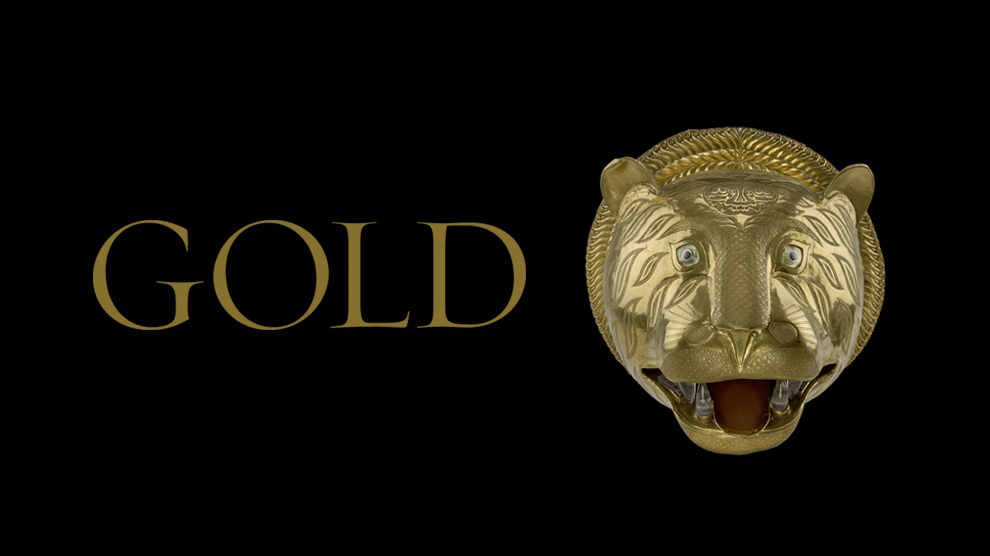
FRENCH
Snuff box
c.1765RCIN 100014
Snuff box of vari-coloured gold, chased with allegories of putti and cherubs, emblematic of arts and sciences. Underside of lid with ivory miniature of Adolphus Frederick IV, Duke of Mecklenburg-Strelitz, wearing Garter Collar and Star.
A remarkable group of letters, acquired by Queen Mary with this box in 1933, provides a fascinating insight into its history. It was a gift from Adolphus Frederick IV, Duke of Mecklenburg-Strelitz, to Hugh Seton of Touch (Stirlingshire) in April 1769. The Duke was Queen Charlotte’s eldest brother. The Queen corresponded regularly with ‘le cher duc’, although she was constantly exasperated by her lack of success in persuading him to marry. Seton, who like George III was a keen agricultural reformer, had met the Duke the previous September. He was entrusted with a number of letters from the Duke to convey to his sister in England. On his arrival in England Seton wrote to the Duke to confirm the safe delivery of the letters to the Queen at the time of her confinement for the birth of Princess Augusta; he added that he was sending the Duke a gift of a post-chaise (four-wheeled carriage) as a mark of friendship. The Duke was delighted with the present. In his reply he thanked Seton for his generous gift, in which he drove out daily, and begged him to accept this snuff box, ‘un petit paquet’, ‘wrapped in brown paper’, as a mark of his friendship.
The box was probably made in Germany by a French workmaster. It is of superb quality and is elaborately chased in vari-coloured gold with allegories of putti and cherubs, emblematic of the arts and sciences. A miniature of the Duke, by an unidentified German artist, is set into the underside of the lid. It depicts the Duke wearing the star and collar of Garter, which he had received in 1764.
Catalogue entries adapted from George III & Queen Charlotte: Patronage, Collecting and Court Taste, London, 2004 and "Gold", London, 2014.
A remarkable group of letters, acquired by Queen Mary with this box in 1933, provides a fascinating insight into its history. It was a gift from Adolphus Frederick IV, Duke of Mecklenburg-Strelitz, to Hugh Seton of Touch (Stirlingshire) in April 1769. The Duke was Queen Charlotte’s eldest brother. The Queen corresponded regularly with ‘le cher duc’, although she was constantly exasperated by her lack of success in persuading him to marry. Seton, who like George III was a keen agricultural reformer, had met the Duke the previous September. He was entrusted with a number of letters from the Duke to convey to his sister in England. On his arrival in England Seton wrote to the Duke to confirm the safe delivery of the letters to the Queen at the time of her confinement for the birth of Princess Augusta; he added that he was sending the Duke a gift of a post-chaise (four-wheeled carriage) as a mark of friendship. The Duke was delighted with the present. In his reply he thanked Seton for his generous gift, in which he drove out daily, and begged him to accept this snuff box, ‘un petit paquet’, ‘wrapped in brown paper’, as a mark of his friendship.
The box was probably made in Germany by a French workmaster. It is of superb quality and is elaborately chased in vari-coloured gold with allegories of putti and cherubs, emblematic of the arts and sciences. A miniature of the Duke, by an unidentified German artist, is set into the underside of the lid. It depicts the Duke wearing the star and collar of Garter, which he had received in 1764.
Catalogue entries adapted from George III & Queen Charlotte: Patronage, Collecting and Court Taste, London, 2004 and "Gold", London, 2014.







